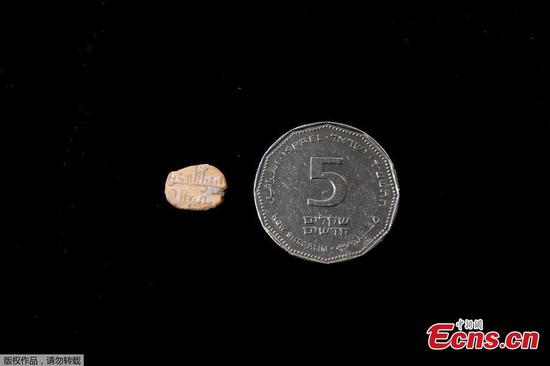Authorities across China are making use of big data to nail corrupt government officials who could otherwise hide their ill-gotten wealth from the prying eyes of anti-corruption watchdogs.
Zhu Hai, a former official in Harbin, Northeast China's Heilongjiang Province, learned it the hard way. The local disciplinary inspection team discovered that he owned 11 properties though the official tried to pull the wool over their eyes by not registering the real estate under his name. Big data was used to find out that he had paid electricity and water bills for his 11 homes, according to Liaowang Institute, a think tank affiliated with the Xinhua News Agency.
More of his misdeeds were later dug up. Zhu, former director of Budgetary Affairs Commission of Harbin People's Congress, was expelled from the Party and dismissed from office in 2017 for offences such as purchasing shopping cards with public funds, having improper relations with several women and resisting the investigation, news site thepaper.cn reported.
Harbin has established a platform containing 470,000 Party members and civil servants' information, including their identities, properties, vehicles, and bank information, to fight corruption with help from big data. The platform stores 31 billion pieces of data under 201 categories, Xinhua reported. Not just Harbin, cities nationwide have adopted big data in the campaign against graft.
Nailing culprits
Mayang county in Huaihua, Central China's Hunan Province, set up a digital supervision platform to keep an eye on the fund used for civil affairs, in order to tackle corruption.
Scared of the platform, some grassroots officials who allegedly helped others cheat on government subsidies, surrendered to authorities.
Using big data, Jingzhou disciplinary inspection department dug out illegal funds of 54 million yuan ($8 million) in several months, including junior officials cheating on government subsidies in renting out property and renovating dilapidated houses.
Southwest China's Guizhou Province has also set up a supervision platform to cover disciplinary inspection agencies at all levels. The platform helped find 5,568 alleged violations and recovered a total of 730,000 yuan since its inception this year. The platform could also track the consumption record of officials.
Harbin's supervision platform revealed that a former publicity department official surnamed Hou flew 54 times including in the first class on 24 occasions in five years since he was promoted. His wife went abroad 18 times. But before his promotion, he had flown 19 times and not even once in the first class.
The drastic change in expenditure pattern drew the attention of local disciplinary inspection officials who soon discovered how he had been caught up in a web of graft.
Hou was responsible of issuing and examining drivers' license in Harbin in 2011, and some company owners would buy air tickets and book luxury hotels for him. A businessman surnamed Zhang doled out benefits worth more 100,000 yuan to him.
Hou was expelled from the Party and fired from his job in March 2016 for severely violating political, working and four other areas of discipline.
Need for improvement
The big data platform can not only detect corruption but has a preventive role, too. Shaoxing inspection agency in East China's Zhejiang Province found that the contract cost of a project had far exceeded its budget.
Three local officials involved in the project were summoned. Realizing that the cover was going to blow away on their misdeeds, they apologized and did not repeat their faults.
China has recently finished setting up a data base registering all real estate information in the country, which is widely expected to be used as a tool by investigators to disclose property ownership of all citizens including officials.
Though the platform has effectively fought corruption, it needs improvement. The data base of vehicles, real estate, exit and entry and registration of enterprises needs to spread its footprint wider to increase accuracy, and should be shared with other government departments, experts say.
Moreover, the disciplinary inspection department has to sharpen its analyzing skills at interpreting data so as to nail the corrupt.
However, the Liaowang Institute pointed out that big data platform may violate personal privacy, and even leak national secrets. It's important to introduce an authorization system to ensure that the data is only available to disciplinary inspection agencies.


















































